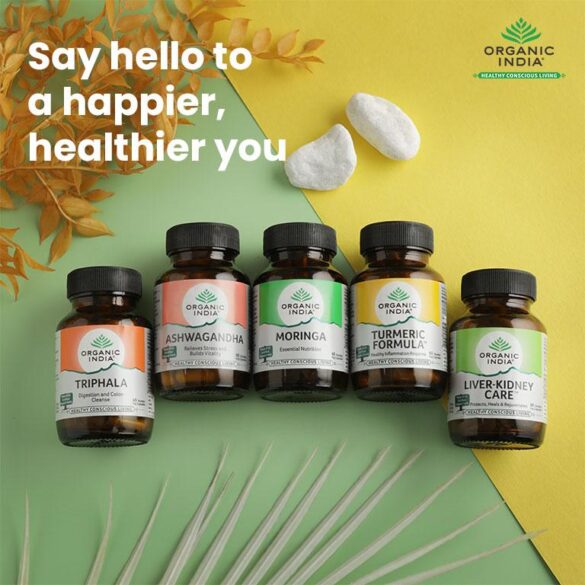In an era where environmental consciousness and personal well-being intersect, the demand for organic health products has surged dramatically. Amidst the vibrant aisles of health food stores and the growing online marketplace, consumers are faced with an array of choices—each touting its own benefits, from enhanced nutrition to eco-friendly practices. But as prices fluctuate and marketing claims abound, one question looms large: what truly makes organic health products worth the investment? This article delves into the intricate relationship between sustainability and quality, exploring how organic offerings not only promise health benefits but also support a more harmonious connection with the planet. Join us as we unpack the essential characteristics that distinguish these products and examine whether the higher cost translates into genuine value for both individuals and the environment.
The Environmental Impact of Organic Health Products
the rise of organic health products has sparked significant discussion around their environmental benefits. These products are typically produced using agricultural practices that prioritize the health of ecosystems, which leads to less pesticide and chemical runoff into waterways. Organic farming techniques promote biodiversity and soil health, enabling farmers to cultivate a wider variety of crops and reduce reliance on synthetic fertilizers. Key advantages include:
- Improved Soil Quality: Organic practices enhance soil structure and fertility.
- Reduced Water Pollution: Fewer harmful chemicals enter aquatic ecosystems.
- Conservation of Biodiversity: Organic farms support a greater variety of plants and wildlife.
- Lower Carbon Footprint: Enduring farming practices frequently enough result in reduced greenhouse gas emissions.
Moreover, organic health products often reflect a commitment to ethical sourcing, as manny brands emphasize transparency and sustainability in their supply chains. By supporting local farmers and fair trade practices, consumers can help foster communities dedicated to sustainable agriculture. To illustrate the impact of choosing organic, consider the following comparison:
| Factor | Conventional Products | Organic Products |
|---|---|---|
| Pesticide usage | High | Low or None |
| soil Erosion | Significant | minimized |
| Water contamination | Likely | Reduced |
| Biodiversity | Low | High |

Nutritional Superiority: Understanding the Benefits of Organic Ingredients
Choosing organic ingredients in health products means embracing a lifestyle that prioritizes both personal health and environmental stewardship. Organic farming practices emphasize the use of natural methods, avoiding synthetic pesticides and fertilizers, which can introduce harmful chemicals into the soil and food chain. By opting for organic, consumers frequently enough enjoy:
- Higher Nutrient Density: Studies suggest that organic produce may contain more antioxidants, vitamins, and minerals.
- Better Flavor: Many enthusiasts argue that organic foods taste better due to the natural growth process.
- Lower Exposure to Toxins: Organic ingredients reduce the risk of pesticide residue and other harmful substances.
Beyond individual health benefits, supporting organic products contributes to sustainable agricultural practices. Organic farming fosters biodiversity, maintains healthy soil, and can help combat climate change by sequestering carbon. Additionally, organic certification frequently enough means adherence to more humane treatment standards for animals, creating a more ethical food production system. When evaluating the impact of organic choices, one can consider:
| Aspect | Conventional | Organic |
|---|---|---|
| Pesticide Use | High | Low or None |
| Soil Health | Depleted | enriched |
| Biodiversity | reduced | Enhanced |

Economic Considerations: Analyzing the Cost vs. Value of Organic Choices
The conversation surrounding organic health products often pivots on the perceived cost versus the tangible value these goods provide. While it is indeed undeniable that organic options typically carry a higher price tag, this expense might potentially be offset by the benefits they offer. Factors such as improved environmental sustainability, better soil health, and reduced reliance on synthetic pesticides contribute substantially to their value. When evaluating whether organic choices are worth the investment, consider the broader implications: healthier ecosystems, support for local farmers, and less exposure to harmful chemicals can enhance both personal and planetary well-being.
Additionally, the long-term financial considerations cannot be overlooked. Though the initial cost of organic products might deter some consumers, investing in health and sustainability may lead to lower healthcare costs in the future. A diet rich in organic foods is often associated with better overall health, possibly reducing the risk of chronic illnesses. Moreover, as consumer demand for organic products continues to rise, economies of scale are likely to reduce prices over time. The following table outlines key factors that highlight the value of organic health products against their cost:
| Factor | Organic Products | Conventional Products |
|---|---|---|
| Health Benefits | Higher nutritional value, fewer chemicals | Preservatives, pesticides |
| Environmental Impact | Promotes biodiversity, less pollution | Soil degradation, toxic runoff |
| Support for Local Economy | Supports local farmers | Frequently enough mass-produced |

Making Informed decisions: Tips for Identifying Authentic Organic Products
When navigating the organic market, it’s essential to know what truly qualifies as authentic. Look for certifications that defend a product’s organic status; reputable labels will typically include USDA Organic or equivalent certifications pertinent to your region. another effective method is to check the ingredient list—a shorter list of recognizable,whole ingredients often indicates a more genuine organic product. Additionally, consider researching the brand’s transparency regarding sourcing and production practices, as reputable companies will readily share this facts with consumers.familiarizing yourself with common buzzwords can also be helpful; terms like “natural” or “eco-friendly” don’t necessarily indicate an organic product.
Engagement with a product’s origin can reveal much about its authenticity. Familiarize yourself with the farm-to-table movement, aiming to support local or small-scale organic producers. Investigate whether the brand aligns with sustainable practices, such as fair trade and minimizing environmental impact in their manufacturing processes. Make it a habit to consult reviews and third-party testing information—these resources often provide insight into a product’s reliability and quality standards. All these strategies not only enhance your knowledge but also empower you to select products that are both sustainable and worth the investment.
Wrapping Up
In a world where choices abound and the impact of our decisions reverberates through ecosystems and communities alike, the quest for quality and sustainability in our health products becomes not just a preference but a responsibility. as we’ve explored, organic health products frequently enough embody a commitment to the earth and to our well-being, combining ethical practices with high-quality ingredients. Investing in these products not only nurtures our bodies but also supports farmers, fosters biodiversity, and promotes a healthier planet.
Ultimately, the decision to embrace organic health products is about more than just personal health—its a step towards a more sustainable future for all. By choosing wisely and investing in quality, we can leave a legacy of care for both ourselves and the environment. In each purchase lies the power to make a difference. As we move forward, let us continue to nurture this vital connection between what we consume, where it comes from, and the world we share. So, the next time you reach for an organic option, remember: it’s not just a choice; it’s an investment in a brighter, greener tomorrow.


